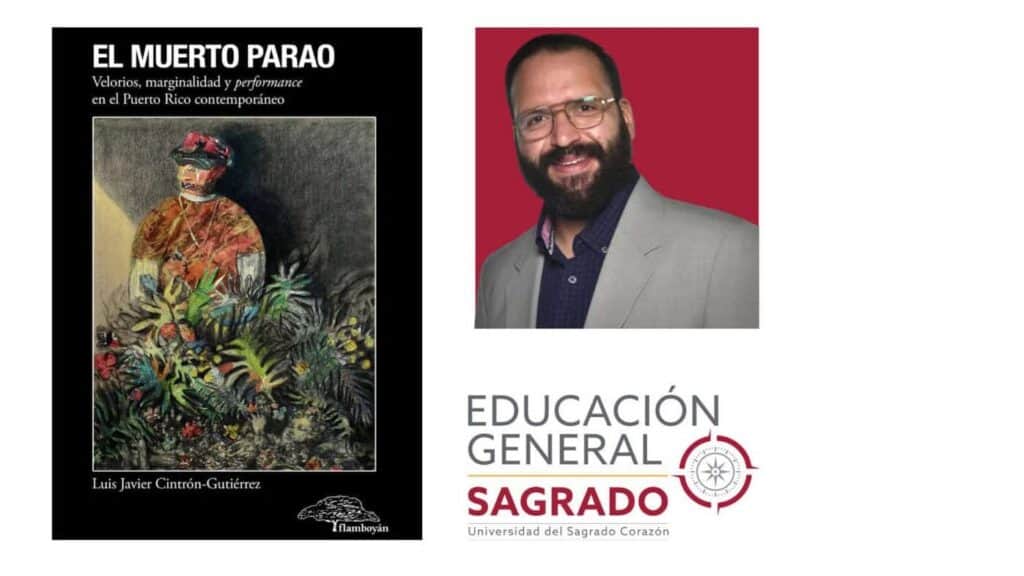The book examines nontraditional funerary practices through contemporary Caribbean imaginaries.

By: Integrated Communications
Professor Luis Javier Cintrón-Gutiérrez, assistant professor and academic lead for the Siglo XXI curricular component, has achieved a new scholarly milestone with the publication of his book El muerto parao. Velorios, marginalidad y performance en el Puerto Rico contemporáneo. The work explores how recent funerary practices—such as displaying bodies outside the casket in poses that simulate moments of life—reveal cultural tensions tied to identity, violence, media, and consumption.
From a critical perspective, Cintrón-Gutiérrez interprets these practices as performative acts that engage with social issues such as drug-related violence, urban inequality, and the cultural construction of death in Puerto Rico and the Caribbean. Rather than treating them as curiosities, he positions them as expressions embedded with social and cultural meaning.
The publication is already circulating in academic spaces in and outside Puerto Rico, and the author has been invited to present his research at universities and specialized forums in cultural studies, anthropology, sociology, and literature. These engagements place his work within current debates on memory, representation, and the role of violence in everyday life.
This editorial project is part of the interdisciplinary academic trajectory Cintrón-Gutiérrez has developed throughout his career. He is a doctoral candidate in Latin American and Caribbean Studies at SUNY-Albany, holds a master’s degree in Media and Contemporary Culture from Sagrado and another in Sociology from the University of Puerto Rico, as well as a bachelor’s in Political Science from the UPR-Mayagüez Campus.
His book represents a meaningful contribution to intellectual production in the Hispanic Caribbean from Puerto Rico and Sagrado. Cintrón-Gutiérrez’s work strengthens the ties between research, teaching, and critical inquiry, and exemplifies the role of faculty in generating knowledge relevant to contemporary cultural debates.
